Friday, June 21, 2024
Registration/Exhibits/ Breakfast
7:30-8:45 a.m.
Concurrent Sessions #3
8:45 a.m. - 10:00 a.m.
Presentation Description
This session will focus on the need for urgency with regard to language acquisition in young deaf or hard-of-hearing children. Families often lack adequate information relative to the risks of language deprivation and its lifelong impact on the young deaf or hard-of-hearing child's brain. Deaf and hard of hearing infants and toddlers and their families have a right to know information from all perspectives and about all modalities as well as accessibility to each. This will allow these children to enter school prepared for instruction. Providing families and Early Intervention professionals with research-based information, resources, and guidance/support in the Deaf and hard of hearing child's journey to acquiring language is critical to developing a strong foundation and keeping them from becoming at risk. Working with the southeastern region of the United States, including Puerto Rico and the US Virgin Islands, the Regional Early Acquisition of Language (South-REAL) Project offers a toolbox of training sessions and resources for a variety of groups, including parents/caregivers, Early Intervention professionals, and Deaf and hard of hearing adults who work with families.
Participant Outcomes and Objectives:
- Participants will identify barriers to supporting language acquisition for deaf and hard-of-hearing infants and toddlers.
- Participants will identify key factors that impact language acquisition for deaf and hard-of-hearing infants and toddlers.
- Participants will identify the resources and tools to support early language acquisition.
Presenter Biographies
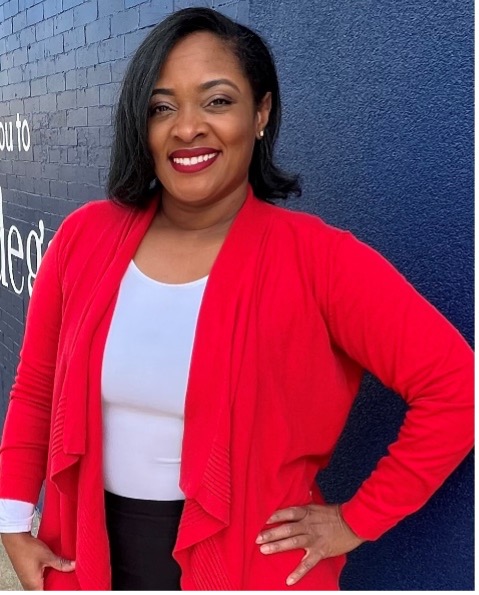
Ukawia Johnson
Family Education Trainer
South-Regional Acquisition of Language (REAL) Project
Ukawia Johnson joined the REAL Project as a Family Education Trainer in September 2020. A licensed social worker, Ukawia has earned a Bachelor of Business Administration from Faulkner University and a Bachelor of Science in Social Work, for which she has always had a passion, from Troy University. Ukawia has also earned a master’s degree in social work with a concentration in children, adolescents, and families from the University of Alabama. Before becoming a Family Education Trainer with REAL, Ukawia was employed with the Alabama Department of Human Resources for 11 years, where she helped families identify their needs and linked children and families to available resources. She has also served as the lead parent mentor for AIDB’s Limitless Beginnings since 2018. Ukawia is a member of the Mobile Early Hearing Detection and Intervention Learning Community and a member of the Deaf Advisory Committee with ADRS. She also volunteers as a youth counselor for teenagers who are deaf and hard of hearing. In 2019 Ukawia authored an article published in Odyssey magazine entitled, “Deaf Plus: A Mother Reflects on Her Son’s Experience.” As the mother of a son who is deaf, Ukawia is an advocate who believes that it is important for children who are deaf and their families to have continued guidance and support to ensure the family’s overall success. Ukawia is a resident of Mobile and has two sons, LaJaren and James. In addition to spending time with her family, Ukawia enjoys spending time with her 2 fur babies, Draco and Connie
Victoria Haggarty
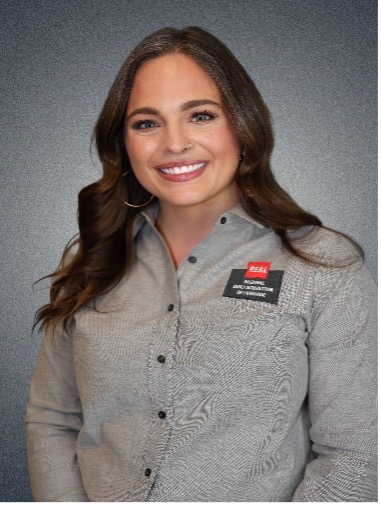
Victoria Haggarty
Co-Director
South-Regional Early Acquisition of Language (REAL) Project
Victoria Haggarty currently is one of the Co-Directors of the Regional Early Acquisition of Language (REAL) South Project. Raised in Nashville, Tennessee, Victoria discovered a passion for the arts. When the time came to attend college at the University of Tennessee in Knoxville, Victoria decided to pursue a career in Art Education as well as Deaf Education. Upon graduation,Victoria took on the role as the high school Visual Arts teacher at Tennessee School for the Deaf Knoxville for the next 4 years.
Wanting to be back in her hometown, Victoria relocated to Nashville in the summer of 2018 to take on the role as the first deaf educator at the Tennessee School for the Deaf Nashville campus. There, she taught preschool to 2nd grade for over 4 years. She also assisted with the development of FIT, the Families, Infants and Toddlers program at TSDN, which is now the Toddler Learning Class (TLC). During this time, Victoria became invested in learning about the research and strategies for language development for D/HH infants and toddlers, as well as support for their families. In August 2021, she earned her Ed.S in Deaf Education with a concentration in ASL/English Bilingual Deaf Education for Ages 0-5 at Gallaudet University. She also graduated from Gallaudet University’s Infants, Toddlers and Families Graduate Certificate program in August 2022.
Victoria moved to Decatur, AL, in November 2022 to begin her career as a REAL Trainer. She became a Co-Director in April of 2024. After almost 10 years of experience as a deaf educator in a wide range of classrooms, she is very passionate about supporting families with deaf and hard of hearing children and professionals who serve them across the South. When she is not working, Victoria enjoys a multitude of hobbies including reading, spending time with her pets, hiking, crocheting, gardening, and refinishing furniture.
Presentation Description
Participants will learn about auditory fatigue. What it is and what causes it, strategies and accommodations for students, assessments available, and resources for parents and staff members. Let's help our students be ready to learn not ready to sleep!
Participant Outcomes and Objectives:
- Learn what auditory fatigue is
- How auditory fatigue impacts students
- Learn strategies and ways to reduce auditory fatigue
Presenter Biography
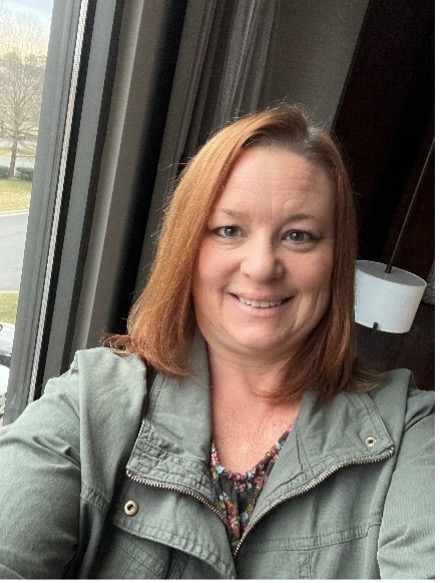
Shelley Millerson
Teacher of the Deaf and Hard of Hearing, Fauquier County Schools
Shelley Millerson is the Teacher of the Deaf and Hard of Hearing in Fauquier County Schools in Virginia. She has a Master’s in Special Education from Radford University and is certified to teach Early Childhood Special Education, Learning Disabilities, Emotional Disabilities, Intellectual Disabilities, and Deaf Education, from birth through 22. She is currently the only TODHH in Fauquier County. She is an itinerant and has over 40 students on my caseload in 15 schools. She also sees home-based students each week.
Aren’t we all tired of being tired? It is very prevalent in those students who have hearing and/or vision loss. She wants her students to be set up for success and ready to learn, not ready to sleep.
Presentation Description
Language and vocabulary development are the cornerstone for every teacher of the Deaf. Ensuring that our students are progressing in their language development requires regular monitoring, explicit instruction, and assessment. Through this presentation, we will examine how to collect a language sample through sample videos, practice transcribing a sample, analyze a language sample for key components, apply the information to determine a language level and discuss how to utilize this information for educational planning.
Participant Outcomes and Objectives:
- At the conclusion of this session, participants will be able to take a variety of language samples across categories.
- At the conclusion of this session, participants will be able to, determine language levels using a guide based on typical language development.
- At the conclusion of this session, participants will be able to apply knowledge of a student's language to write present levels, goals, and lesson plans.
Presenter Biography
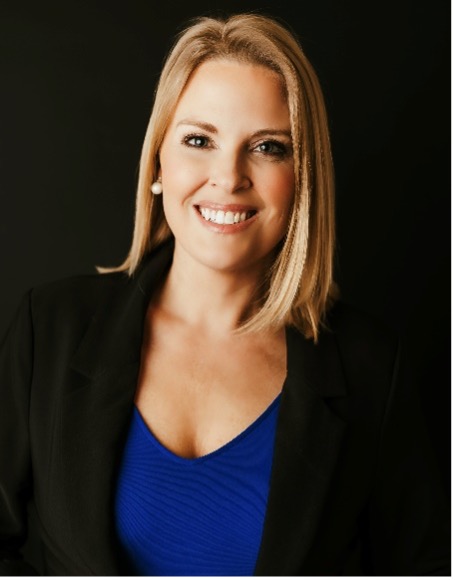
Robin Bliven
Director of Outreach Services
Virginia School for the Deaf and Blind
Robin Bliven is the Outreach Director at The Virginia School for the Deaf and the Blind. She attended the University of Tennessee for her bachelor's and master's degrees in Education of the Deaf and hard of hearing. She has taught in Pre-K-12th grade across the country in both itinerant and site-based settings. She has experience in both hearing and vision loss in her work as the lead teacher for sensory disabilities in Pitt County, North Carolina. Robin moved to Virginia and into the role of Outreach Director in 2021. She lives in Chesapeake, Virginia with her 2 daughters. Robin spends her free time watching a lot of softball, driving people places, and trying to keep up with laundry.
Concurrent Sessions #4
10:40 a.m. - 11:55 a.m.
Presentation Description
This presentation will cover Cued American English and literacy strategies. Participants will learn what Cued American English is and review phonological awareness components. The impact of current reading strategies commonly used in the US on children who are deaf and hard of hearing will also be briefly discussed. Participants will learn three strategies to use Cued American English to support phonological awareness and literacy that they can start using in their own practice. Resources will be shared to support these strategies.
Participant Outcomes and Objectives:
- Identify 3 basic components of cued speech
- Identify 3 phonological awareness strategies that can be used with cued speech.
- Identify 2 strategies they can use for cued speech and literacy in their desired age range (early intervention, preschool, early elementary).
Presenter Biographies
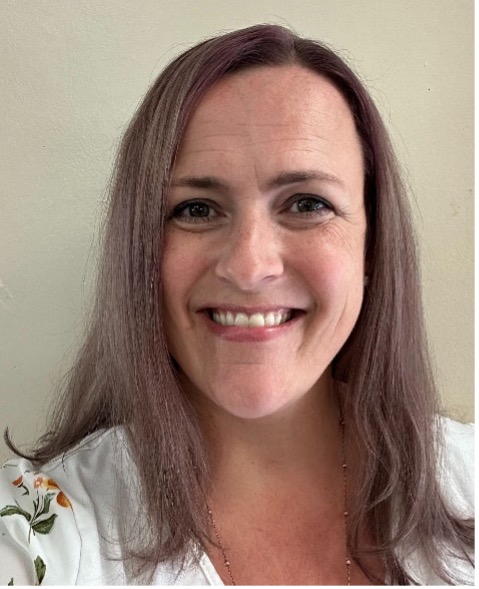
Emilie Mulholland
Teacher of the Deaf and Hard of Hearing
Infant Toddler Connection Fairfax/Falls Church Fairfax County Public Schools Hands and Voices of Virginia
Emilie Mulholland, a deaf adult with bilateral cochlear implants, is an early interventionist in Fairfax County, VA. She works with families who have a child who is deaf or hard of hearing and is committed to providing families with objective information to support their choice of modalities. Emilie grew up using Cued American English, uses it with her husband and 3 children, and also uses Cued Language Transliterators at work. Of her 3 children, 1 is also deaf with bilateral cochlear implants. Emilie is also serving as a board member of Virginia Hands and Voices, and TECUnit, Inc.
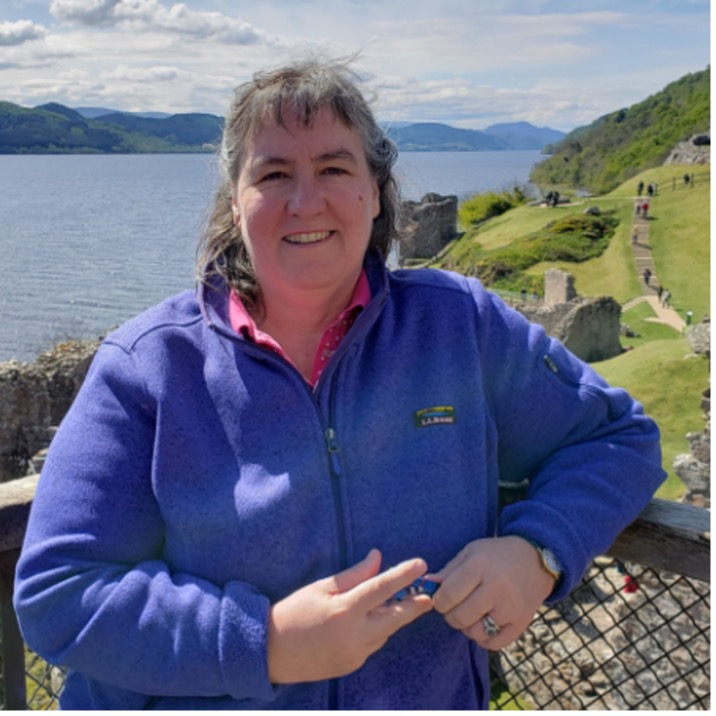
Amy Ruberl
Co-Director
South-Regional Early Acquisition of Language (REAL) Project
Amy Ruberl has been involved with cued language at both regional and national levels since 1987. She earned a master’s in education of the deaf from Smith College and a bachelor of science in education from Bucknell University. Amy is chair of the National Cued Speech Association Instructor Certification Committee. Previously she served the NCSA as Executive Director, Director of Programs (initiating workshops and camps across the United States), and Regional Director for the Capital Area (MD, DC, VA, WV). Amy was the director and assistant director of Cue Camp Friendship in Maryland for many years and was the first president of the MDCSA. Amy worked as a communication specialist and teacher for Montgomery County Public Schools’ Programs for students who are Deaf and Hard of Hearing working with signing, cueing, and oral students for ten years.
Presentation Description
Most teachers assume that their classroom is inclusive of all students, but in reality, students with hearing loss are being left out. Most classrooms have poor signal-to-noise ratios or background noise. Due to this, instructional opportunities are being lost each day.
In our session, come along with us as we get to know Quinn, a case study student with hearing loss participating in a general education course. Explore the road that led Quinn to receive special education and related services, as well as consider the learning environment and supports needed for them to achieve equal instructional opportunities and active inclusion within the classroom setting.
Participant Outcomes and Objectives:
- Examine an IEP at a Glance document to identify areas of strengths, challenges, and areas of services and/or needed support
- Consider and list accessibility components that could be added to the environmental setup and instructional design for students who have hearing loss.
- Consider a classroom setup/design and literacy lesson plan to support a case study student with hearing loss.
Presenter Biographies
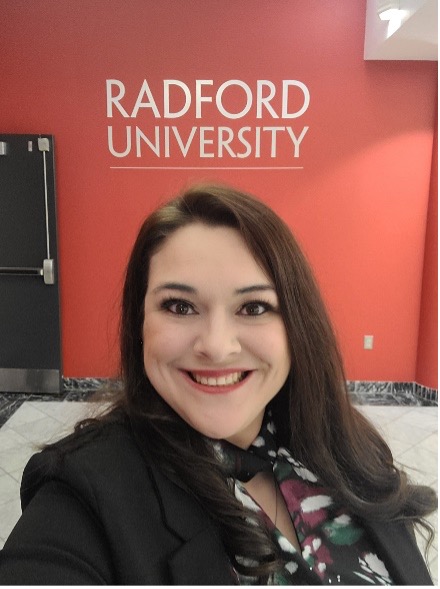
Kristy McCowan
Faculty
Radford University
Kristy McCowan is a faculty member of the School of Teacher Education and Leadership at Radford University, where she has taught special education courses for the past four years. Her courses at Radford focus on teaching Characteristics of Diverse Students in Today’s Population and the Special Education Process, Characteristics of Students with Disabilities Participating in the General Education Environment, Characteristics of Students who Access the Adapted Curriculum, and Classroom Management and Supporting Students with Behavioral Challenges. Before teaching at Radford, Kristy was a high school special education teacher and mentor in Montgomery County, Virginia. She taught in both inclusive, co-taught classrooms and a specialized adapted classroom for students who needed targeted instruction in reading skills.
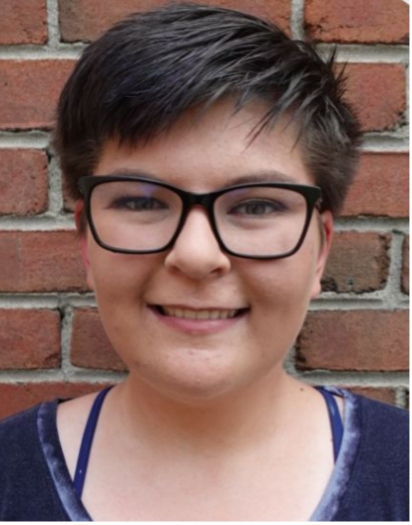
Anna French
Student
Radford University
Anna French (they/them/theirs) is a student at Radford University studying Communication Sciences and Disorders. In their second semester, they switched from Deaf Education to Communication Sciences and Disorders in order to see communication from a more medical perspective. As of May 2024, they are an alum student of Radford University and will be starting their first year as a graduate student in Speech-Language Pathology. As a senior, they were the president of the National Student Speech-Language-Hearing Association and a Diversity & Inclusion Work Group Member of the National Student Speech-Language-Hearing Association. In their senior year, they completed a literature review researching gender-inclusive milestones in early language development from a Speech Pathologist perspective. In graduate school, they are interested in the areas of voice (disorders & gender-affirming voice therapy), classroom acoustics, and early intervention.
Presentation Description
The average reading level for a child who is Deaf or hard of hearing upon graduation is the fourth grade. This statistic has remained stagnant for far too long. It’s time for change. This workshop will show participants how building a strong language foundation can lead to increased skills in literacy. Guests will listen to a lecture, participate in whole group discussions, and perform a video analysis. Various techniques will be explored that give educators the tools to promote early language development among Deaf and hard-of-hearing children. These techniques include both visual and auditory evidence-based practices.
Participant Outcomes and Objectives:
- Participants will be able to understand the importance of having a strong language foundation and how it leads to improved literacy skills.
- Participants will be able to effectively collaborate with other related services and educators on what the best strategy would be to teach the DHH child how to improve literacy.
- Participants will be able to apply specific literacy strategies they learn from the workshop with their DHH students or children. More specifically ways that children can decode words both auditorily and visually.
Presenter Biography
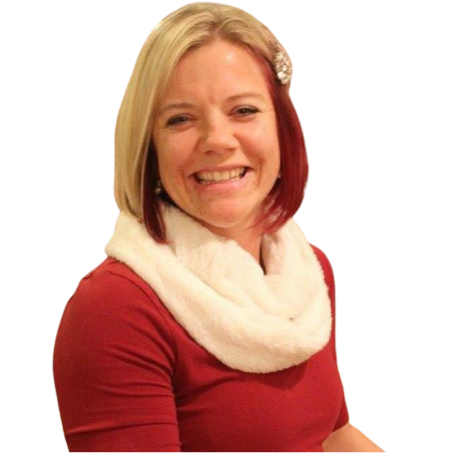
Lindsey Bomba Holcomb
Educational Interpreter, NIC
Lindsey Bomba-Holcomb, “Bomba”, is an Educational Interpreter with almost 20 years of experience in the educational setting. She received her Bachelor's degree in 2005 from Old Dominion University and her State Interpreter Certification in 2008. Later in 2011, Bomba went on to further her education and received her National Interpreter Certification. She will complete her Master’s degree in Deaf Education from Radford University this Summer. She has experience working with students in all settings ranging from early childhood to college. Bomba’s true passion lies in working with language-deprived students and emergent language learners. She and her husband, Josh, have two children, a 3-year-old girl named Charlotte and her baby brother, Lincoln. You will find her coaching, antiquing, and even teaching incarcerated youth in her spare time. She embraces the opportunity to share her experience and knowledge with all educators who work with Deaf and HH students.
Concurrent Sessions #5
1:10 p.m. - 2:25 p.m.
Presentation Description
This panel discussion will look at successful strategies used in school programs and collaborating with adult services across secondary and post-secondary settings.
Participant Outcomes and Objectives:
- Identify strategies for independent living, work readiness, and self-advocacy skills in the community.
- Understand the importance of work experiences in the community for students who are Deaf, Hard of Hearing, and Deafblind, and learn strategies for building relationships with community businesses.
- To have a better understanding of transition options and services. Understand how to get connected with the Department of Aging and Rehabilitative Services to assist students and their families in transition to adulthood.
Presenter Biographies
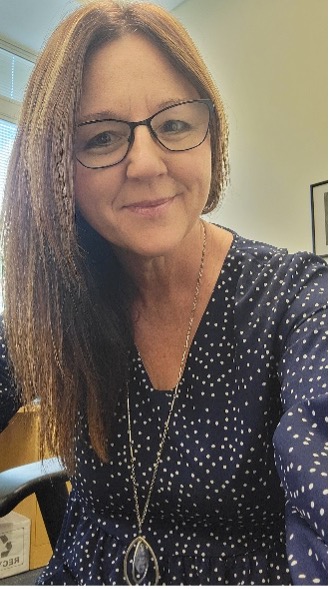
Sharon Ernest
Transition Specialist
The Virginia School for the Deaf and the Blind
Department of Aging and Rehab Services
Nu-Beginning Farm: The Store
Sharon Ernest has been employed at the Virginia School for the Deaf and the Blind (VSDB) for the past 18 years, where she has served in several different roles. She has been the Transition Specialist for the past 7 years. Part of Sharon’s job responsibilities include the coordination of VSDB’s Work Based Learning program, where she places students in unpaid work experiences on campus and in the community.
Sharon has her bachelor’s degree in Deaf Studies/ASL from the University of South Florida, studied among Deaf undergraduates at Gallaudet University for one semester, holds a teacher license in Deaf Education from Radford University, and a graduate certificate in Special Education Transition from George Washington University in Washington D.C. Sharon also worked for 4 years as an educational interpreter in the public schools.
Julie Conner
Virginia School for the Deaf and the Blind
Julie Conner has been in the field of Special Education for 22 years. She obtained her Master’s Degree in Special Education from James Madison University. She has taught students at various age/grade levels with a wide range of abilities, in multiple school settings, including public schools, and a psychiatric care facility, and has been at Virginia School for the Deaf and the Blind (VSDB) for 13 years. Julie serves in multiple roles at VSDB. She specializes in working with students in Adapted Curriculum classes and developed and implemented a functional curriculum. She co-developed VSDB’s Independent Living Skills Curriculum and helped to design the Independent Living Skills Apartment (ILA) Program for students who are Deaf, hard of hearing, blind/visually impaired, and Deafblind, and she currently coordinates the program. Julie provides classroom support for teachers in the Deaf department as well as the Blind department.
Traci Branch
Statewide Transition Specialist, Department for Aging and Rehabilitative Services
Traci Branch works in the Division of Rehabilitative Services (DRS) as the Statewide Transition Specialist for Deaf &Hard of Hearing programs with the Virginia Department for Aging and Rehabilitative Services (DARS). She attended Gallaudet University where she completed her studies in the field of Social Work and earned a Bachelor of Arts degree. She graduated from Virginia Commonwealth University with a Master’s of Science degree in Rehabilitation Counseling and attended George Washington University where she earned a post-graduate certificate in the area of Special Education and Traumatic Brain Injury. Traci is a board-certified rehabilitation counselor. Traci’s passion is equal access and justice as she serves on numerous committees, councils, and boards where her role is to amplify access and opportunities for individuals with disabilities. For the past five years, she collectively coordinated a VR-funded summer program for high school students who are deaf and hard of hearing that focuses on the core components of pre-employment and transition services.
John Matheny
Co-Owner/General Manager, Nu-Beginning Farm Store
John Matheny has been co-owner, General Manager, and Executive Chef of Nu-Beginning Farm Store in Staunton, Virginia, for the past 11 years. John has been in food service for the past 45 years working in both franchises and private eateries before co-founding Nu-Beginning with his wife Stella. His understanding of food stems from in-depth knowledge of gardening and animal husbandry which led to John teaching several homesteading classes to share his knowledge with his community. These classes merged with an intern program through James Madison University's extracurricular program which later morphed into an accredited class through JMU. John also shares his culinary experiences through specialized prepared meals and cooking classes with the general public. John has collaborated with the Virginia School for the Deaf and the Blind for the past two years to provide a work site for students who are Deaf, Deafblind, and students with visual impairments.
Presentation Description
The Language Experience Book, a common teaching tool for building language in the preschool setting, can be used to develop language and literacy skills in d/hh children, regardless of their age! Although primary grades are where this task is developmentally appropriate for all students, the strategies in this presentation can be adapted for language learners of all ages.
Participant Outcomes and Objectives:
- "Language Experience Books are not just for preschool! They can be structured to address language and literacy skills at a developmentally appropriate level for all emerging readers and writers.
- There are resources (such as original presenter-created VA SOL target content vocabulary lists) that provide a teacher of d/hh students with explicit language targets.
- There are practices (use of weekly vocabulary sheets. exploiting the sense of audience, high expectations for quality of work, collaboration with family) that accelerate the progress a child can achieve.
Presenter Biography
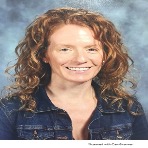
Krystyne Meyer
Early Childhood Special Education Preschool Coordinator
Stafford County Public Schools
Krystyne Meyer is currently working in Stafford County Public Schools as a coordinator of early childhood special education services. She has taught most recently in the special education setting at the K/1 level for several years. Prior to that, she worked as a teacher of the deaf and hard of hearing, teaching students in the residential setting as well as self-contained settings (elementary, middle, and high school), and as a resource and itinerant teacher for students who are deaf and hard of hearing. She holds an undergraduate degree in Deaf Education from The College of New Jersey, a Master’s in Deaf Education from Gallaudet University, a certificate in Auditory Learning from the University of North Carolina Chapel Hill, and has recently completed coursework to obtain Administration and Supervision certification in the state of Virginia.
Presentation Description
Language and vocabulary development are the cornerstone for every teacher of the Deaf. Ensuring that our students are progressing in their language development requires regular monitoring, explicit instruction, and assessment. Through this presentation, we will examine how to collect a language sample through sample videos, practice transcribing a sample, analyze a language sample for key components, apply the information to determine a language level and discuss how to utilize this information for educational planning.
Participant Outcomes and Objectives:
- At the conclusion of this session, participants will be able to take a variety of language samples across categories.
- At the conclusion of this session, participants will be able to, determine language levels using a guide based on typical language development.
- At the conclusion of this session, participants will be able to apply knowledge of a student's language to write present levels, goals, and lesson plans.
Presenter Biography

Robin Bliven
Director of Outreach Services
Virginia School for the Deaf and Blind
Robin Bliven is the Outreach Director at The Virginia School for the Deaf and the Blind. She attended the University of Tennessee for her bachelor's and master's degrees in Education of the Deaf and hard of hearing. She has taught in Pre-K-12th grade across the country in both itinerant and site-based settings. She has experience in both hearing and vision loss in her work as the lead teacher for sensory disabilities in Pitt County, North Carolina. Robin moved to Virginia and into the role of Outreach Director in 2021. She lives in Chesapeake, Virginia with her 2 daughters. Robin spends her free time watching a lot of softball, driving people places, and trying to keep up with laundry.
Concurrent Sessions #6
3:00 p.m. - 4:15 p.m.
Presentation Description
This presentation will be a guided discussion. The presenter will offer ways they have found effective for collaboration and serving my students, but the presentation will offer participants ways to share what works for them and create a community of those TOD's for support.
Participant Outcomes and Objectives:
- Take skills and strategies to implement practices for students on their caseload who are Deaf/Hard of Hearing.
- Utilize collaboration skills to better communicate with other professionals in the D/HH community.
- See ways to create and utilize digital platforms to better serve the students on their caseload.
Presenter Biography
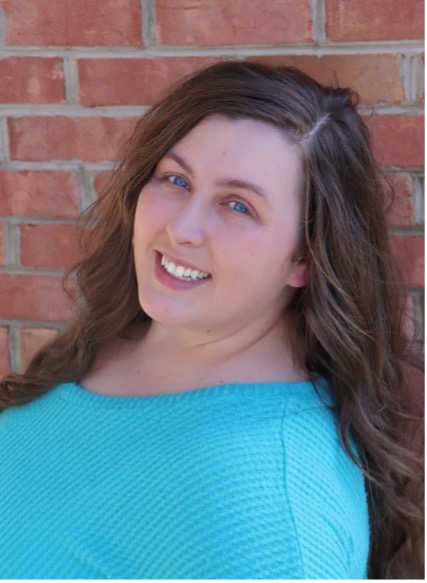
Dana Boardwine
Teacher of the Deaf and Hard of Hearing
Smyth County Public Schools
Dana Boardwine is a Teacher of the Deaf/Hard of Hearing for Smyth County Public Schools in Southwest Virginia. She has a bachelor's in Interdisciplinary English Education with a focus on Special Education from Emory and Henry College. She has a Master’s in Special Education from Radford University with a focus on Deaf/Hard of Hearing Education. Currently, Dana is in her seventh year teaching Special Education and is the only itinerant TOD/HH in Smyth County Public Schools serving the needs of those Deaf/Hard of Hearing children in Pre-k through 12th grade.
Presentation Description
The session will be a participatory lecture. In our second-grade mainstream class, we teach word problems in both ASL and English. This gives us a number of opportunities to discuss math skills, English grammar, and ASL grammar. By comparing the syntax and structure of the two languages, we can strengthen the student's skills in math, reading, writing, and ASL simultaneously. The presenters will lead the audience through a sample lesson with an adult-level math problem. The audience will need to learn to solve the problem while also studying the relationships between ASL and English grammar.
Participant Outcomes and Objectives:
- Make connections between English and ASL grammar.
- Model new strategies for understanding and teaching word problems in early elementary.
- Incorporate robust language models into math instruction.
Presenter Biographies
Rob Hammel
American Sign Language Teacher
Chesterfield County Public Schools
Rob Hammel is a teacher of American Sign Language at OB Gates in Chesterfield County. After working for several years as an interpreter and an instructional assistant in deaf classrooms, Rob helped create the first Dual Language Immersion program for American Sign Language in the United States. OB Gates is proud to still be the only school in the country offering this program. Rob was honored for his work as a Dual Language Immersion Teacher in 2022 when he received the Beginning Teacher of the Year award from Chesterfield County. This year, he has accepted an appointment to the board of the Chesterfield Education Association. Rob enjoys playing music and Dungeons and Dragons in his free time with his wife and three adult children.
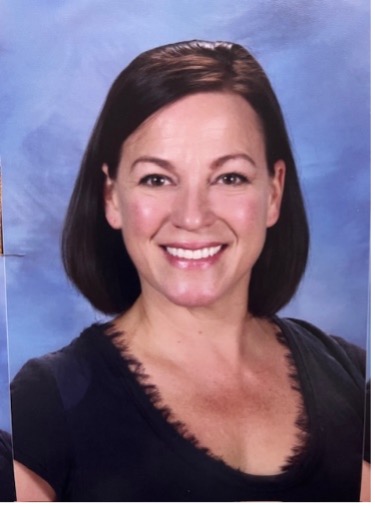
Donna Kirk
Second Grade Teacher
Chesterfield County Public Schools
Donna Kirk is a second-grade teacher at OB Gates Elementary. Donna has spent 21 years in the classroom. She taught special ed for two years, kindergarten for 16 years, and is now in her third year of teaching second grade. Donna enjoys camping and working in the local theater community in her spare time. She loves working in a Dual Language classroom and is always looking for new innovations to help her students learn!
Presentation Description
In this session, attendees will gain insight into a selection of approaches useful for supporting students with varying disabilities and print-related disabilities (e.g., Text-to-speech highlighting feature for visual tracking, Large Print for students with Dyslexia). The session will highlight some of the different text formats and reading technologies associated with supports that may benefit students who are Deaf, hard of hearing, or have other disabilities. Additionally, we will briefly introduce AIM-VA, our free services, and demonstrate how AIM and reading technologies work together.
Participant Outcomes and Objectives:
- At the conclusion of this session, participants will be able to: Identify some common accessible text formats and/or learning technologies.
- At the conclusion of this session, participants will be able to: Discuss some common approaches to identifying and creating an accessible document.
- At the conclusion of this session, participants will be able to: Discuss the mission of the AIM-VA organization and the ways in which to access its services.
Presenter Biography
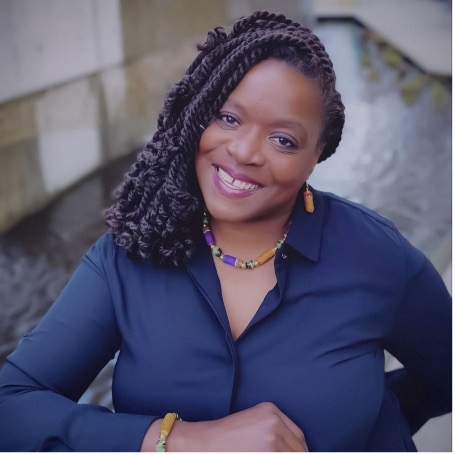
Tiffany O'Neal
Technical Training and Support Specialist, AIM-VA
Tiffany O'Neal is the Technical Support & Training Specialist with AIM-VA and a second-year PhD student at George Mason University (GMU). She earned a graduate certificate in Assistive Technology at GMU, her Master of Science in Human Services Administration at the University of Baltimore, and her Bachelor of Science in Speech-Language Pathology from The University of the District of Columbia.
Tiffany's current research interests and professional pursuits include strengthening the collaborative efforts between related service providers (e.g., Speech Pathologists, Assistive Technology Specialists), classroom teachers, and other members of the K-12 IEP team! She also aims to support administrators, educators, and service providers in increasing their awareness and understanding of classroom and vocational assistive technologies.